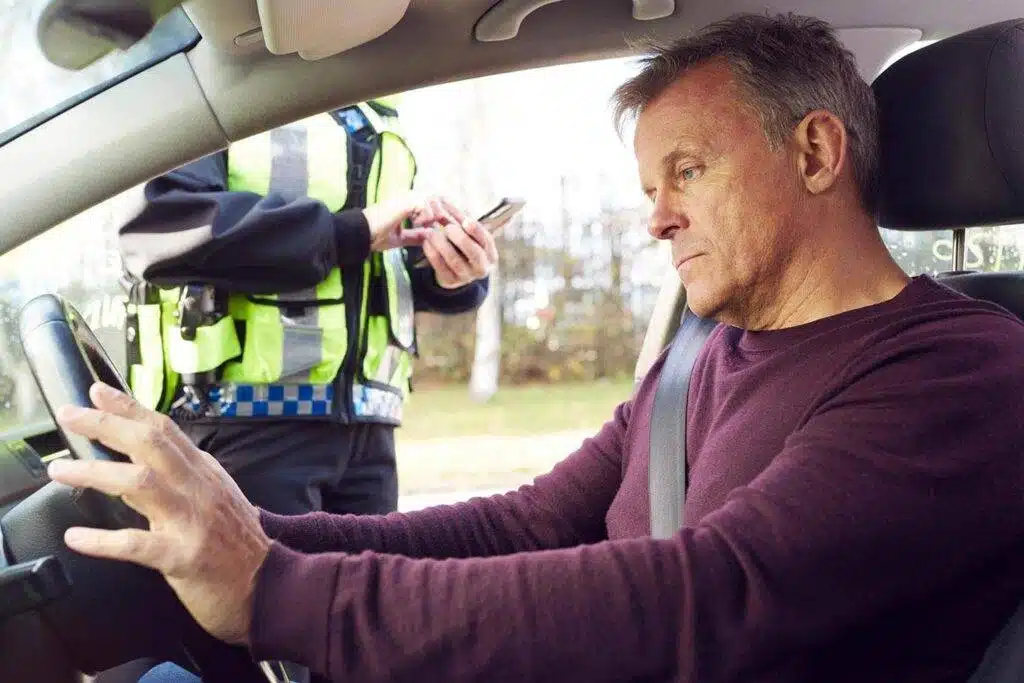In Colorado, as in many states, law enforcement officers use DUI field sobriety tests (FSTs) to assess whether an individual is under the influence of alcohol or drugs. In this guide, we will review the most commonly used FSTs in Colorado, whether or not they are mandatory, their reliability, and the most effective strategies for challenging these tests in court.
What Is a Field Sobriety Test?
A law enforcement officer may ask you to complete a field sobriety test (FST) during a traffic stop if they suspect you are violating a Colorado DUI law. This includes driving while:
- Under the influence of alcohol or drugs
- Having a BAC of 0.08% or above
- Ability impaired
- Intoxicated and underage
What Types of FSTs are Used in Colorado Traffic Stops?
The National Highway Traffic Safety Administration (NHTSA) has established standardized guidelines for the following three field sobriety tests.
Horizontal Gaze Nystagmus (HGN)
Because alcohol depresses the nervous system, it impacts our coordination and reflexes, eye movements included. “Nystagmus” refers to the involuntary jerking of the eye when looking to the side; alcohol consumption can result in the exaggeration of this motion.
During the HGN test, an officer will have you stand with your feet together and hands at your sides. They will then have you track a small stimulus (often a pen tip or penlight) with your eyes only, while keeping your head still. They will start with your left eye, move to your right, then repeat the process on each eye.
The primary goal of this exercise is demonstrate indications of alcohol/drug impairment, such as:
- Your inability to track the stimulus in one smooth movement
- Sustained jerking when your eyes are looking to the side
- Nystagmus beginning before your eyes have tracked 45 degrees
It is important to note that many factors other than alcohol/drug use can cause the onset of horizontal gaze nystagmus, including but not limited to: extreme temperatures, viral or bacterial infections, eye diseases, inner ear issues, vitamin deficiencies, glaucoma, sunstroke, and caffeine. In no way is this test a definitive indicator of guilt in a DUI case. Jump to the next section (“Can These Tests Be Trusted?”) to learn more.
Walk and Turn (WAT)
The walk and turn test is a “divided attention test” that aims to assess balance and coordination. A divided attention task requires you to perform multiple things simultaneously, often combining physical and mental skills. Alcohol and drugs impair one’s ability to perform such tasks.
In this specific test, a law enforcement officer will ask you to walk heel-to-toe (physical) while counting (mental). You will begin in a heel-to-toe position with your hands at your sides. You will then take nine heel-to-toe steps forward, turn, and do the same in the other direction, all while counting your steps aloud.
There are eight different signs that the officer will look for when determining intoxication during this test.
- You’re off balance while listening to the instructions.
- You start the test too early/before you are asked to.
- You stop in the middle of walking.
- You don’t touch your heel to your toe.
- You don’t walk in a straight line.
- You use your arms for balance.
- You turn at the wrong time (too early/too late).
- You don’t take the correct number of steps.
As with the HGN test, there are several factors other than drugs and alcohol that could influence your ability to perform this task satisfactorily. For example, if you are overweight, have mobility problems, or are ill/injured, you may struggle with this task regardless of your intoxication level.
One-Leg Stand (OLS)
The one-leg stand is another divided attention task; this one requires you to elevate one foot and count simultaneously. During this test, a law enforcement officer will ask you to stand with both legs straight and hands at your sides. Then, you will be asked to lift one foot six inches off of the ground while keeping both legs straight and count to 30.
The key of this test is making it to a full 30 seconds. Many impaired drivers can make it to around 25 seconds in this pose; however, much fewer can continue to 30 seconds. The officer will use the following metrics to determine intoxication during this test:
- You move or sway while attempting to balance.
- You use your arms to help you balance.
- You hop or jump.
- You set your foot down before the 30 seconds are up.
As is the recurring theme here, this test may not be accurate if you have certain medical conditions.
Can These Tests Be Trusted? More on the Accuracy of Field Sobriety Tests
While these tests are designed to test impairment, they are NOT foolproof. Their reliability depends on several factors, including the skill/training of the officer administering the test and the age, weight, physical condition, and existing medical issues of the person taking it.
These tests were designed in a controlled environment; however, the traffic stop environment will never be controlled. Factors that can detract from the reliability of these tests include:
- The officer provides unclear instructions.
- The officer is not properly trained in recognizing signs of impairment and interprets things incorrectly.
- There is not adequate lighting in the testing area.
- The ground in the testing area is uneven.
- The person taking the test is wearing clothing that makes the task difficult to complete.
An experienced Colorado DUI lawyer can carefully examine the circumstances surrounding the administration of any field sobriety tests to challenge their validity in court based on any of these reliability concerns.
Are Field Sobriety Tests Mandatory in Colorado?
Many of our clients ask whether they can refuse field sobriety tests in Colorado – the short answer is YES. When you are pulled over in the state of Colorado, there are only two things that you are required to do: (1) state your legal name and (2) provide your license and registration.
You are NOT required to answer any other questions or complete any field sobriety tests. In fact, if you are 21 or older, you are not even required to submit to a handheld breathalyzer test (pre-arrest).
The main goal with these tests is to provide an officer with probable cause to arrest you. Even if you feel confident in your ability to complete these tests, we recommend against doing so. While refusing to take the tests has no legal consequence, the results of any tests you do take can be used against you in court. Avoid incriminating yourself and politely decline if the officer asks you to complete an FST.
Challenging Field Sobriety Tests in Court: What’s the Best Approach?
The results of field sobriety tests may be evidence of impairment, but they are not proof. Furthermore, as we have discussed, countless factors can impact the reliability of each test. Studies show that FSTs are accurate only around 65-77% of the time, even in the most perfect of conditions. At MBS Law, our DUI attorneys have decades of experience supporting clients through DUI cases and challenging the results of FSTs. Some of the confounding factors that we often discuss include:
- Relevant medical conditions, illnesses, or injuries
- Prescription medications
- Environmental issues, such as visibility issues, uneven ground, or inclement weather
- Exhaustion or eye strain
- Issues with the officer, such as lack of training, inexperience, or unclear instructions
Hire Colorado DUI Lawyers Near You
Have you been charged with a drunk-driving or drug-related offense in Colorado? Did you “fail” a field sobriety test in the process? The DUI lawyers at MBS Law can help. We will examine the evidence against you and craft a robust defense strategy to help you move forward with confidence. No one should have to go through the legal process alone. Let us protect your freedom and your future and get a free consultation today.



